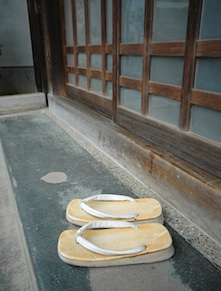By Lindsey Liles
Study abroad pitches the wide eyed student into a different world, one of unfamiliar landscapes, strange foods, new faces, and a foreign language—but the quality of the experience begins in the planning stages.
In selecting a program, students look at factors including the area of the world that interests them, their foreign language skills, and the courses of study. But the best study abroad experiences are created as much by the people that you encounter as by the place you choose to go. One of the critical factors of a positive experience is finding a way to connect with the host culture. So, a consideration equally important as where to study is where to live once you get there. There are two main options for living situations abroad: the homestay, in which a student lives with a family, and dormitory or apartment living, in which the student lives with other students.
When I stepped off the plane to begin my IPSL program in Quito, Ecuador, my host mother kissed me, took my bags, and had hot tea and cookies waiting at home despite my late night arrival. Over the next month, she invited me to coffee with her friends, introduced me as her daughter, and corrected my painful Spanish. I became close friends with my host brother, who took me to the traditional artesian market and up the tourist gondola. My family served as an invaluable window into the culture of Ecuador. As time passed, they became more than a representation of Ecuador: they became friends. Similarly, a participant of an SIT study abroad program in Prague who lived with a family for the duration of her time in the Czech Republic cited her homestay as “an invaluable part of the experience.” Her family took her out to the farmhouse in the countryside where her mother grew up, and overall “gave [her] a place where she felt she belonged.” These two positive experiences highlight that choosing a homestay is probably the most direct way to integrate into a culture.
Many students feel, however, that “it is not worth the risk” of a bad family match, and take the dormitory housing route. This option can offer some opportunity for culture immersion, but it can also cushion the student by simply placing them with other Americans. Of an IES Economics program in France, a participant says “I made some close friends abroad, but they were all American. We lived together and naturally just spoke English to each other.” When I asked if she felt comfortable in the culture, she told me that she “had little connection to it,” and that though she felt comfortable and happy in the physical sense of living in Paris, she still felt “distinctly like an American visitor.” Similarly, a participant in a CIEE program in South Africa who lived in a dorm said that though her experience was great and she met and made friends, they were all American, and that by the time she left, she “had the sense that it was a welcoming culture but that [she] was on the outside.” That said, however, a dorm experience can be positive in terms of connecting to the host culture if it includes a local. A participant in DIS in Demark lived with other Americans, but a Danish student was in charge of their dorm. The Dane became a “cultural resource.” The participant said that she “met so many local Danish people through her” and that “when [she] needed anything, from being lost in Copenhagen to a phrase in Danish” the local student was there to help. The best study abroad programs are ones that offer homestays or dormitory settings with some type of hook into the host culture; if not, the student is in danger of becoming a sort of extended tourist in a place they should come to feel a sense of belonging.
Any living option abroad will have its strong and weak points, but ultimately the responsibility of being more than a tourist lies with the student. Whether you choose a home stay or a dorm, reach out to the local people around you. Spend a night away from your core group of other international students. Take an afternoon to watch a movie with your host mother. Doing so will deepen your experience: it is in these moments of connection that you will become not an outsider, but a friend who belongs.
Lindsey Liles is a senior English and Biology major at Sewanee: The University of the South. Sewanee is home to the Beta of Tennessee Chapter of Phi Beta Kappa.




